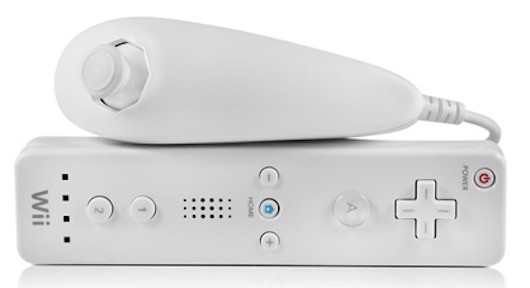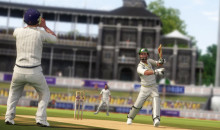Specially adapted Nintendo Wii games as physiotherapy have led to “significant” improvement in arm movements for some stroke survivors
Paralysis or problems controlling movement are among the most common disabilities resulting from stroke and have a major impact on everyday life. Lancaster University researchers say seven out of 10 stroke survivors suffer from arm weakness as a result of their stroke, and only a fifth of these people ever regain the full use of their arm. A new study suggests the Nintendo Wii could provide an effective, economical and fun rehabilitation tool for stroke victims.
Paralysis or problems controlling movement are among the most common disabilities resulting from stroke and have a major impact on everyday life. Lancaster University researchers say seven out of 10 stroke survivors suffer from arm weakness as a result of their stroke, and only a fifth of these people ever regain the full use of their arm. A new study suggests the Nintendo Wii could provide an effective, economical and fun rehabilitation tool for stroke victims.
The preliminary study conducted by researchers at Lancaster and Brunel universities, which saw specially adapted Nintendo Wii games used as physiotherapy tools, resulted in what the researchers called “significant” improvement in arm movements for some stroke survivors, with the findings potentially paving the way for improved community-based stroke rehabilitation.
The study involved stroke survivors participating in three trials, which saw them imitating a 3D avatar on screen, following movement patterns for the shoulder, elbow and forearm, as well as playing games that included hitting randomly appearing balls and playing air hockey on screen.
Their movements were recorded and a physiotherapist remotely monitored their progress, giving advice as well as customizing the movement, speed, duration, scoring and feedback of the games. The results are impressive, with participants experiencing a threefold increase in their ability to pick up and put pegs in holes.
Following the study, one participant was able to lift and drain a cooking pan for the first time since her stroke 11 years earlier. Another reported being able to play games and do other things not possible for them before.
“The innovative use of the Nintendo Wii could present a way to enhance community based stroke rehabilitation of the arm by providing a motivating and cost-effective way of exercising that could be remotely monitored and exercises adjusted as required by a physiotherapist,” said lead researcher, Dr Emmanuel Tsekleves of Lancaster University.
Stroke statistics are sobering. According to the World Stroke Organization, one in six of us will have a stroke during our lifetime and 15 million people worldwide (almost 800,000 in the US alone) suffer a stroke each year, making it a leading cause of death and disability.
With stroke such a devastatingly common disease, researchers around the world are working to improve the lives of survivors, from a stimulation glove that improves the patient’s sense of touch, to technology that helps rebuild damaged neurons and an exoskeleton that trains victims to walk normally again. The Nintendo Wii could provide a cheap addition to the rehabilitation arsenal.
There are now plans to extend the 15-month study, which was published in Disability and Rehabilitation.






